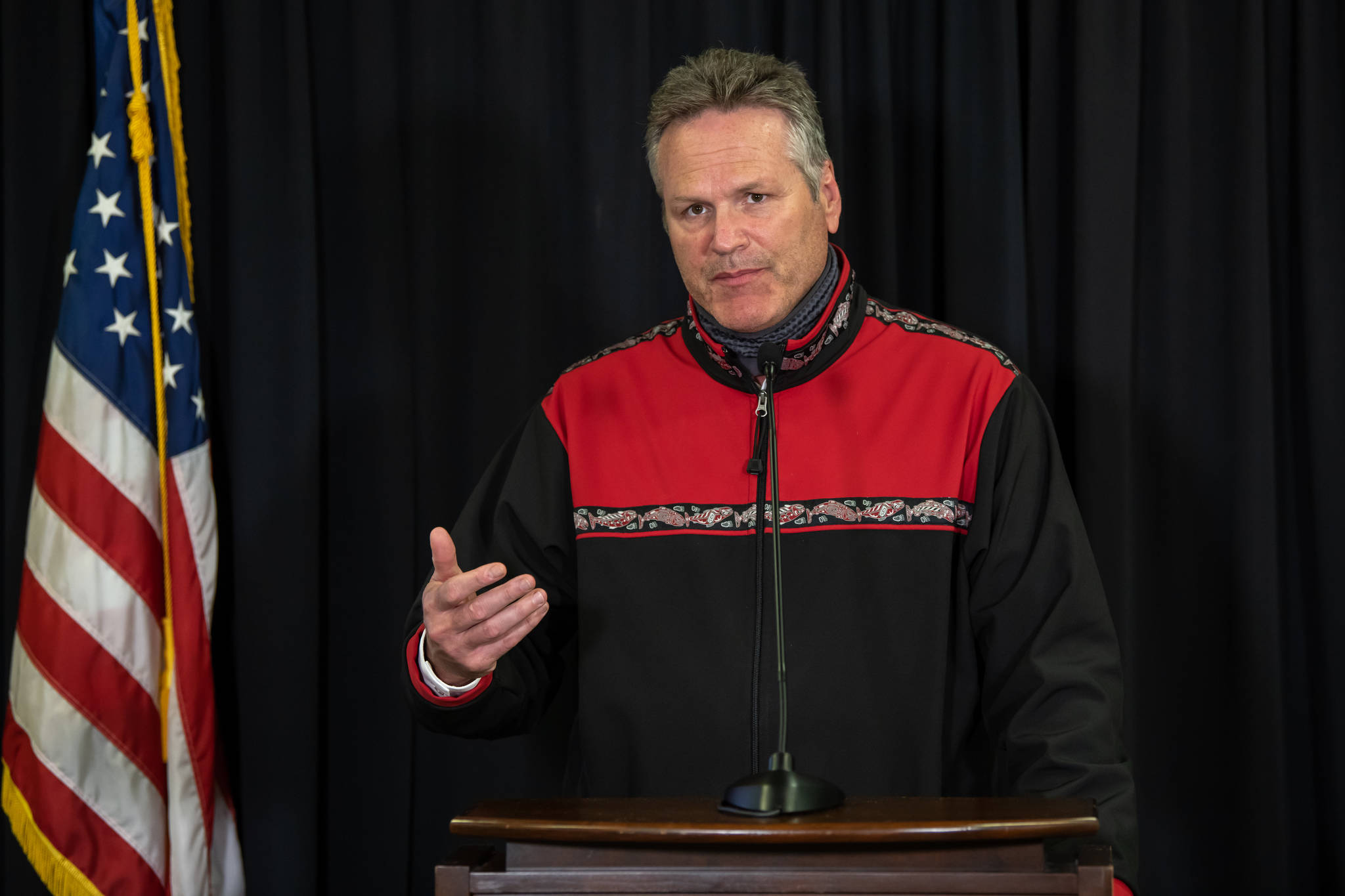The state’s largest department could become two of its larger departments.
Gov. Mike Dunleavy on Tuesday announced plans for an executive order that would divide the Department of Health and Social Services into two departments.
“Some may say that this is growing government — it’s not,” Dunleavy said in a news conference. “There’s no additions. It’s just splitting it out, so there’s focus on those two individual departments.”
Dunleavy pitched the reorganization as a way to increase focus on the responsibilities of each department and improve outcomes for Alaska. He cited Article III, Section 23 of the state constitution as establishing the governor’s ability to reorganize the state’s executive branch.
The governor’s office also mentioned past executive orders that created both the Department of Transportation and Public Facilities and the department of corrections as precedent for the proposal, in a frequently asked questions document about the reorganization.
“We want government to be better,” Dunleavy said. “We want government to perform better.”
Under the proposed reorganization, the divisions of health care services, public assistance, behavioral health, senior and disabilities services and public health would comprise the Department of Health, which would be led by current Department of Health and Social Services commissioner Adam Crum. The Office of Children’s Services, Alaska Pioneer Homes, Division of Juvenile Justice and Alaska Psychiatric Institute would be part of a proposed Department of Family and Community Services.
“Any attention of one division is at the detriment of another,” Crum said during the conference. “We are working under the tyranny of time. There’s just not enough time and bandwidth in the day for the commissioner’s office and staff to do anything but move from fire to fire — from crisis to crisis.”
The other half of the proposed split, the Department of Family and Community Services, would be led by a commissioner to be appointed by the governor and confirmed by the Legislature, and each department would include a division for finance and management services, according to the governor’s office.
Dunleavy said he does not have any particular candidate in mind for the potential new cabinet position.
The change is not expected to lead to a reduction in the number of state employees, Dunleavy and Crum said.
Dunleavy added the change isn’t motivated by a desire to “hack off” parts of government.
The order isn’t expected to lead to state employees having to reapply for their jobs or relocate, Dunleavy said.
The reorganization, which was not included in the governor’s budget released on Dec. 13, also isn’t expected to be costly, according to the governor.
“Right now, we’re anticipating it’s going to be a cost-neutral issue,” Dunleavy said.
Once the order is submitted during the upcoming legislative session, the Alaska State Legislature will have 60 days to disapprove of it via a resolution supported by a majority of lawmakers in a joint session, according to state statute.
The Legislature will not be able to amend the executive order, which means the order is an all or nothing proposition.
If the order isn’t disapproved, it will take effect on July 1, 2021, according to the governor’s office.
Read a frequently asked questions document about the reorganization below:

